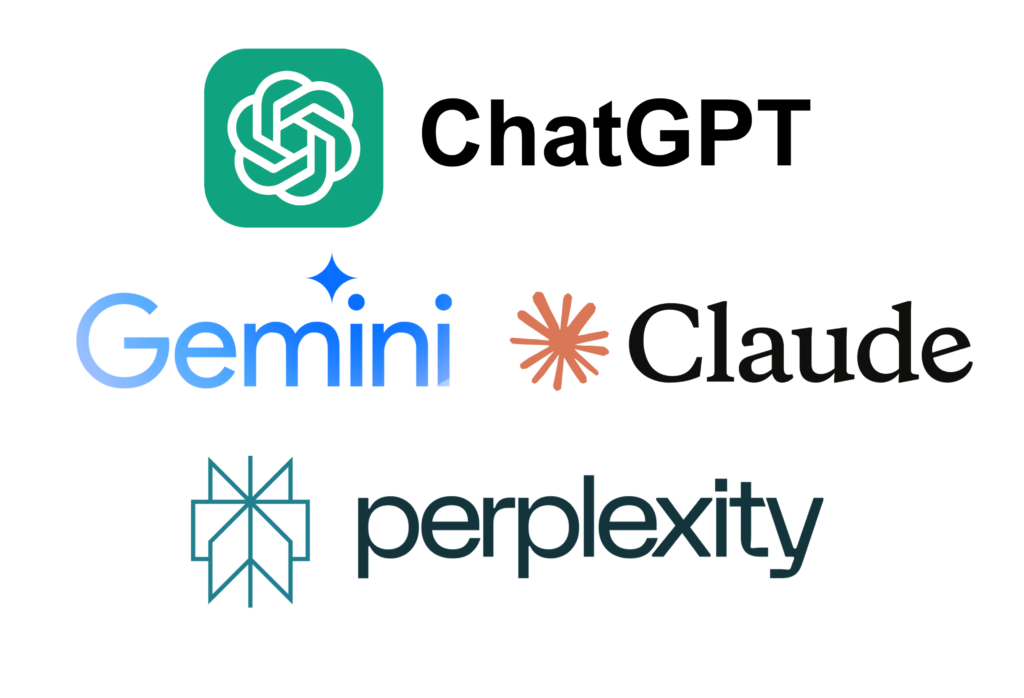Content Marketing Strategy for SMEs
What is a Content Marketing Strategy?
A content marketing strategy is your roadmap for creating, publishing, and managing content that attracts and engages your target audience while supporting your business goals. Unlike random blog posts or occasional social media updates, a content marketing strategy is a planned, purposeful approach that ensures every piece of content you create serves a specific purpose.
In this guide we’ll cover:
Key Components of a Content Marketing Strategy
Why SME’s need a Content Marketing Strategy
Content Marketing Strategy v Content Marketing
Getting Started with your Content Marketing Strategy
The Importance of High Quality Content
What Factors Determine High Quality Content?
New Content v Repurposed Content
Common Mistakes to Avoid
The Relationship between Content and SEO
The Future of Content Marketing
Get More from your Content Strategy

Key Components of a Content Marketing Strategy
Clear Objectives
Your strategy defines what you want to achieve – whether that’s increasing website traffic, generating leads, building brand awareness, or establishing your expertise in your field.
Target Audience Understanding
It identifies exactly who you’re speaking to, what problems they face, what questions they’re asking, and where they spend their time online.
Content Planning
Your strategy outlines what types of content you’ll create (blog posts, videos, case studies, FAQs), how often you’ll publish, and which topics you’ll cover.
Distribution Channels
It determines where you’ll share your content – your website, social media platforms, email newsletters, or industry publications.
Measurement and Improvement
A good strategy includes ways to track what’s working and what isn’t, so you can continually improve your results.
Why SMEs Need a Content Marketing Strategy
For small and medium sized businesses, a content marketing strategy is particularly valuable because it:
Maximises limited resources
Instead of creating content randomly, you focus your time and budget on content that delivers results
Builds consistent brand presence
Regular, planned content keeps your business visible and top-of-mind with potential customers
Supports multiple business goals
Well-planned content can simultaneously improve your SEO, nurture leads, and demonstrate your expertise
Creates long-term value
Strategic content continues working for your business long after it’s published, unlike paid advertising that stops when you stop paying
Content Marketing Strategy vs. Content Marketing
While content marketing refers to the overall practice of creating valuable content to attract customers, a content marketing strategy is the plan that guides this practice. Content marketing without strategy is like driving without a destination – you might end up somewhere, but it probably won’t be where you wanted to go.
A strategy ensures that every blog post, video, or social media update moves you closer to your business objectives while providing genuine value to your audience.
Getting Started with Your Content Marketing Strategy
Developing a content marketing strategy doesn’t have to be complicated. Start by asking yourself:
- What do I want my content to achieve for my business?
- Who am I trying to reach, and what do they need to know?
- What expertise or insights can I uniquely offer?
- Where does my audience look for information?
- How will I know if my content is working?
With clear answers to these questions, you’ll have the foundation for a content marketing strategy that drives real results for your business.
Now that we’ve established what a content marketing strategy is, it’s important to understand how it differs from traditional marketing approaches. Unlike traditional advertising, content marketing focuses on delivering valuable, relevant, and consistent content that connects with your target audience through the strategic framework we’ve just outlined.
For SMEs with limited budgets and resources, having a clear and focused content marketing strategy – with defined objectives, target audience understanding, and planned content creation – can level the playing field and generate real results for your business. When you know exactly who you’re speaking to and what you want to achieve, every piece of content works harder for your business.
This guide explores how to implement your content marketing strategy effectively, examining the value of high-quality content, what’s needed to create it, and how small businesses can use strategic content to support business goals and stand out in competitive markets.

The Importance of High-Quality Content
Great content is an incredibly powerful asset for small businesses, delivering ROI in various ways.
-
Improves search rankings
High-quality, SEO content is a key factor in how search engines rank your site. The more valuable and relevant your content, the higher you’ll appear in search results.
-
Drives sales and conversions
Great content isn’t just informative – it’s persuasive. Including strategic calls-to-action and compelling messaging can help you guide your audience through the buying journey and transform them from visitors to customers.
-
Builds trust and authority
Consistently delivering valuable information positions you and your business as an expert in your field. This builds trust and encourages repeat visits from users who see you as a reliable source, which in turn can boost customer retention.
-
Supports each stage of the customer journey
Not all visitors are ready to buy. Content that educates and informs helps nurture potential customers until they’re ready to make a decision, increasing the chances they’ll return when it’s time to purchase.
-
Enhances your marketing strategy
Strong content supports your wider marketing efforts. It strengthens SEO through backlinks, fuels social and email campaigns, and ensures that users landing from ads or posts find content that meets their expectations.
-
Differentiates your business from competitors
In a crowded market, standout content can set you apart. Sites that offer useful, engaging information are more memorable and more likely to win customer preference.
What Factors Determine High Quality Content?
High-quality content is defined by its relevance, clarity, originality, and value to the audience. It should be well-researched, factually accurate and tailored to meet the specific needs and interests of its target readers. A clear structure, proper spelling and grammar, and a logical flow will make it easy to read and understand.
High quality content also engages readers, encourages interaction, and often includes visual elements like images or videos to enhance understanding. Finally, it should be optimised for search engines without compromising readability, using keywords naturally while still prioritising user experience.
Should You Create New Content or Repurpose Existing Content?
There’s no doubt that creating high-quality content takes time and effort, which results in many marketers wondering whether it’s better to produce new content or optimise their existing pages.
The reality is that both are important. New content builds authority, captures search demand on emerging topics and engages loyal readers with fresh perspectives, while repurposing content enhances the visibility of your existing assets, fixes outdated information or broken links, and can save you valuable time.
A balanced approach is the best option – regular content audits will help you find pages that have low traffic or conversion, or contain outdated information or are thin on content and could benefit from a refresh.
Then, if you have gaps in your content or you want to cover current news or events, fresh blogs or case studies will make the most sense. Make sure that any content you create aligns with your target audience’s needs and your specific business goals. You don’t want to add content to your site that doesn’t add value to the reader or duplicates content you’ve covered elsewhere.
Common Content Writing Mistakes to Avoid
Your website content reflects your business — get it right, and you build trust, drive conversions, and increase sales. Get it wrong, and you risk turning visitors away.
Duplicate content
Copying content from other sites or repeating it across your pages hurts SEO. Google won’t rank duplicate pages, meaning fewer people find you. The solution is easy – ensure every page has original, high-quality content.
Poor spelling and grammar
Bad grammar puts potential customers off and could result in them avoiding your business entirely. Make sure you use spell checking tools and proofread your content carefully before you publish it.
Too many links
Adding too many links can appear spammy and is not only off-putting to readers but also to search engines. Instead, prioritise the links that add the most value to the reader.
Keyword stuffing
Just as too many links signal spam to search engines, so do too many keywords. Try to use your primary keywords naturally and ensure they’re relevant to the rest of the content to avoid search penalties.
Quantity over quality
Long content isn’t better unless it’s valuable. Focus on clear, concise pages that serve a purpose — quality always outperforms word count.
Missing Calls to Action (CTAs)
Each piece of content you publish should guide your users towards an action, whether that’s signing up for a newsletter, buying a product or contacting you.
Ignoring the customer
Avoid jargon and always write with your actual audience in mind, not just your ideal one. Make your content clear, relatable, and focused on real user needs.
DIY writing
Not everyone is a writer, and that’s ok. If content creation isn’t your strength, outsource it to an agency or a freelancer to get better results.

What’s the Relationship Between Content and SEO?
Content and SEO are deeply interconnected. In fact, content is the foundation of effective search engine optimisation. Search engines aim to deliver the most relevant, high-quality results to users, and that means they prioritise websites with valuable, well-structured content.
You’ve likely heard the phrase ‘content is king’, and there’s a reason why this expression is used so often in content marketing. Google’s philosophy is based on delivering a great user experience – their goal is to ensure users find exactly what they’re looking for every time they search, and as quickly as possible.
Their name for their machine learning artificial intelligence system that helps process search results to achieve this is RankBrain, and it looks for signals on web pages that will determine if the page is a good fit for a particular search. There are around 200 major signals RankBrain uses (along with potentially 10,000 more sub-signals), including title tags, keywords and grammar, to decide which pages it provides in the search results.
By strategically incorporating keywords, answering user intent, and organising your content clearly, you help search engines understand what your site is about and why it should rank for specific queries. High-quality content also attracts backlinks, improves dwell time, and reduces bounce rates — all signals that can boost your rankings.
The Role and Risks of Blog Content in SEO
Quality, regularly updated content signals to search engines that your site is active and authoritative. However, not all content is beneficial—low-quality or irrelevant blog posts can harm your site’s performance.
Excessive outbound links and poorly written posts (especially AI-generated ones) can undermine your credibility and hurt search visibility. Guest posts, in particular, while valuable when done right, are often abused for link-building. Google now scrutinises these closely, favouring content that is well-written, relevant, and clearly intended for real users—not just algorithms.
To stay on the right side of Google’s evolving guidelines—especially following its Helpful Content Update—focus on publishing genuinely useful, human-written content tailored to your audience. Offer practical content like FAQs, how-to guides and blogs.
Good content should be easy to find and navigate, so pay attention to your site layout and use visuals and video to enhance engagement. Make sure you optimise for all your users too, not just those on a desktop. Mobile users are a major part of any business’ audience, so ensure your content is mobile-friendly and tailored to their needs. Mobile usability is also a key SEO ranking factor.
The Role of Content in User Engagement
Content plays a vital role in capturing and retaining user attention on your website. Engaging content, whether it’s in the form of a blog, a landing page or videos, not only draws visitors in but encourages them to explore further, interact with your brand, and ultimately take action.
Well-crafted content keeps users on your site longer and reduces bounce rates by providing your audience with immersive experiences, but it also creates opportunities for meaningful interaction such as through comments, shares, or click-throughs. This builds a sense of connection and trust with your audience and enhances the user experience.
Ultimately, content that resonates with your audience fosters loyalty, encourages return visits, and increases the likelihood of conversions. Quality content doesn’t just inform — it invites users to participate, explore, and stay engaged with your brand.
What Does Content Marketing for Small Businesses Include?
Small businesses should focus on creating valuable, targeted content that attracts and retains customers without the need for large budgets. There are various small business content ideas that can be used to engage your audience, such as blog posts that address common customer questions, social media updates to connect with local audiences, email newsletters to nurture leads, and SEO-optimised website copy to boost visibility on search engines.
Small businesses might also consider creating case studies, customer testimonials and how-to guides to build trust and demonstrate expertise. The goal is to provide helpful, relevant content that speaks directly to your ideal customers.
What is Evergreen Content?
Evergreen content refers to content that remains relevant, valuable, and useful to readers over time — regardless of when they encounter it. Unlike news articles or trend-based posts that quickly become outdated, evergreen content covers topics that have consistent interest and long-term appeal, such as “how-to” guides, FAQs, product tutorials, or industry best practices.
This type of content continues to attract traffic, generate leads, and support your SEO efforts long after it’s published, making it a smart investment for any content strategy. Because it doesn’t require frequent updates, evergreen content also offers lasting value for your brand and helps establish your website as a reliable resource in your niche. In order to create evergreen content, you need to focus on quality, clarity and, above all, timeless topics to build a strong foundation for ongoing user engagement and organic search visibility.
How are Content Trends Evolving?
Content marketing is undergoing a significant transformation, marked by a shift towards conversational content and the influence of artificial intelligence (AI) in content creation. Conversational content—characterised by a more natural, dialogue-like tone—is gaining traction as brands strive to engage audiences more authentically.
This approach aligns with the growing use of AI-driven tools like ChatGPT, which not only facilitate the creation of content but also serve as platforms where users seek personalised recommendations and information. For instance, Gen Z consumers increasingly turn to AI assistants for advice, influencing how brands position themselves in AI-generated responses.
Moreover, the rise of AI-generated summaries in search engines, such as Google’s AI Overviews, is altering how users interact with content. This shift requires new optimisation strategies that focus on enhancing visibility within AI-generated content.
These trends underscore the importance for content marketers to adapt by embracing conversational tones and understanding AI’s growing role in content dissemination while still maintaining the human element. Balancing technological advancements with authentic, human-centric storytelling will be key to engaging audiences effectively.

The Future of Content Marketing
The future of content marketing is being shaped by rapid technological innovation and evolving consumer expectations. As AI continues to advance, we can expect content creation to become faster, more personalised, and increasingly data-driven. AI tools are already being used to generate content, analyse performance, and tailor messaging based on real-time user behaviour—trends that are only set to grow.
Interactive and immersive content formats, such as augmented reality, virtual reality, and voice-activated experiences, will play a bigger role in how brands engage audiences. Consumers are also showing a clear preference for authenticity, with a growing demand for relatable, human-centred content that feels honest rather than overly polished or sales-driven.
Successful content marketing will depend on not just producing more content, but smarter content that is deeply relevant, easy to access across all devices, and responsive to the nuanced needs of increasingly tech-savvy audiences.
Getting More from Your Content Marketing Strategy
Many people looking to invest in an SEO content writer might be tempted by the promises some SEO companies make of thousands of articles for low prices. However, while it may seem like a great way of saving money, the reality is these blogs and articles will be poorly written and found on low-quality sites.
Developing a sustainable SEO strategy requires time and attention to detail, and that’s where Artemis comes in. Our in-house content writers produce carefully researched, SEO-friendly content for your site that’s tailored to your industry and your audience. It may require a bigger investment up front, but the ROI will make it much more worthwhile.
At Artemis Marketing, we’re passionate about helping you grow your business. Get in touch with us today to book a consultation and discuss how we can build your SEO strategy.

